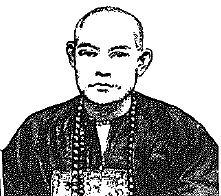Literary Theory: An Introduction by Terry Eagleton; University of Minnesota Press; Minneapolis.
To put Mr. Eagleton in the proper light, one might borrow a quotation from his own Walter Benjamin; or, Towards a Revolutionary Criticism (1981):
Let us review some of the names of the major Marxist aestheticians of the century to date: Lukacs, Goldmann, Sartre, Caudwell, Adorno, Marcuse, Della Volpe, Macherey, Jameson, Eagleton.
He undoubtedly includes him self because he is the author of studies including Marxism and Literary Criticism (1976), Criticism and Ideology (1976), and The Rape of Clarissa, Writing, Sexuality and Class Struggle in Samuel Richardson (1982; see Chronicles of Culture, November 1983, pp.41-42). Literary Theory: An Introduction has no obvious trappings of Marxism in its title. In the preface Mr. Eagleton quietly states, “This book sets out to provide a reasonably comprehensive account of modem literary theory for those with little or no previous knowledge of the topic.” That neutral statement seems innocent enough. Given the fact that the “those” to whom he refers are undoubtedly students and teachers—for who else would concern them selves with the subject?—the book must have been designed and formulated with the class room in mind. Indeed, the book, in effect, is something of a survey course: Literary Theory from the Formalists to the Post-Structuralists—and Beyond. Mr. Eagleton proves himself to be a lupine professor in wool apparel.
That is, people who claim to be among the ranks of the “major Marxist aestheticians” don’t readily desert their posts; Mr. Eagleton has had no illumination since he made his claim. So while the book might appear to be above suspicion (it even has a very bourgeois Vermeer on the cover), it is actually a tract wherein kernels of “right think ing” are slipped in to aid the un initiated who want to sound knowledgeable in campus rathskellers or English department lounges. Mr. Eagleton sets up the various theoretical models only to dialectically bash them about. A line like “structuralism was the dupe of an alienated theory of scientific practice, one power fully dominant in late capitalist society,” almost makes us want to embrace the practice for no other reason than to vex those like Mr. Eagleton. By the end he claims, “There are indeed Marxist and feminist theories of literature, which in my opinion are more valuable than any of the theories discussed here”—and it’s worth noting that the modest Mr. Eagleton discusses those theories through figures ranging from Arnold to Derrida, by way of theorists including Eliot and Barthes. And we thought that the Cult of the Individual was a no-no.

Leave a Reply